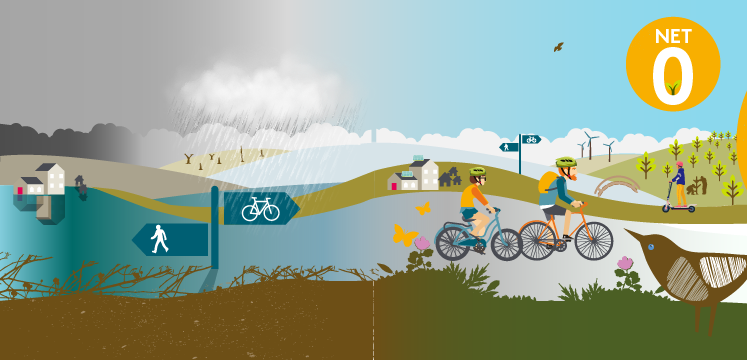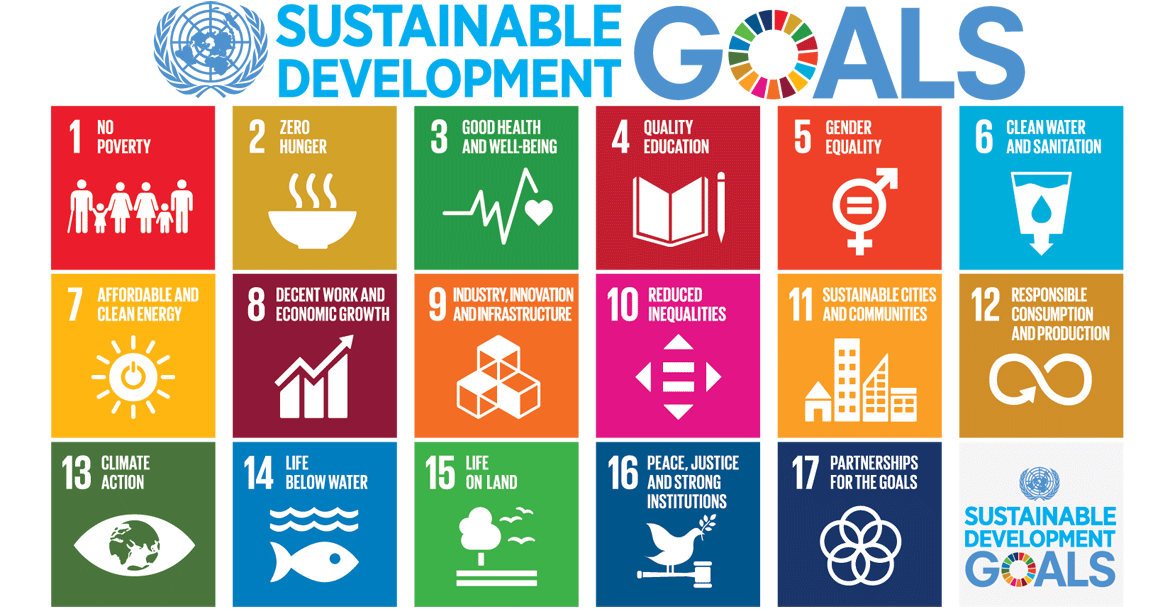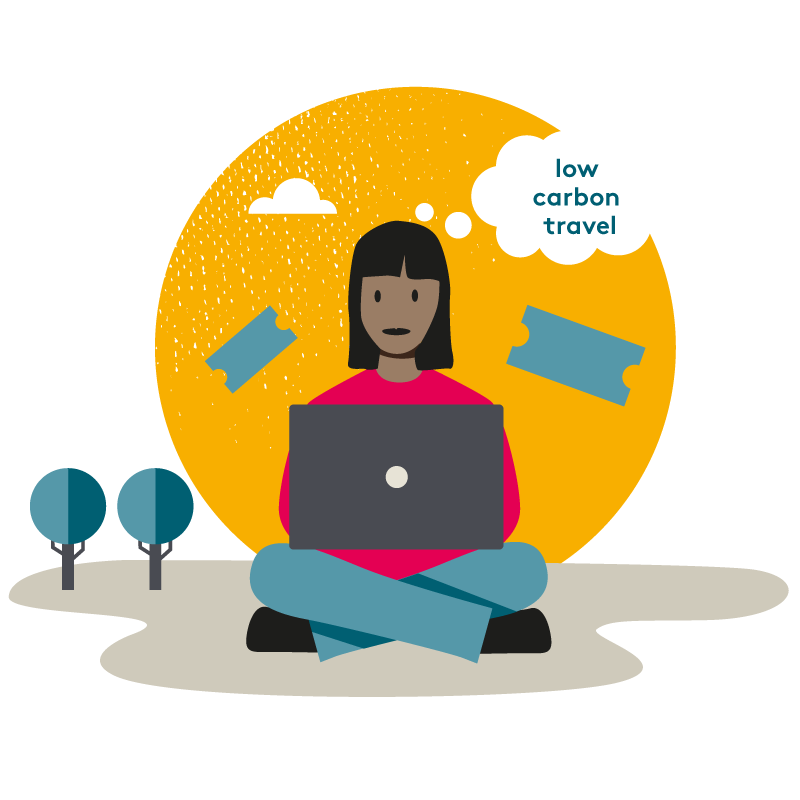
The Plan is influenced by wider global, national and local priorities as highlighted below.
The 2030 Agenda for Sustainable Development is a global agreement which includes the United Nation’s 17 integrated Sustainable Development Goals. Since the publication of the last Management Plan, world leaders have agreed these goals which form a “blueprint to achieve a more sustainable future for all” and seek to address global issues including poverty, health, equality, famine, climate and the environment.
The UK Government is supporting the delivery of the Sustainable Development Goals across all government departments.
Our Plan will contribute to the achievement of some of these Sustainable Development Goals through actions which address our key challenges. Our actions will identify where we are contributing to tackling these Sustainable Development Goals.

The UN's 17 sustainable development goals.
This infectious disease spread rapidly around the world and had profound effects throughout 2020 posing enormous health, economic and social challenges to the entire human population. Its effects have been significant on the Lake District, particularly in the tourism sector resulting from the three national lockdowns. Recovery is a focus of our current Plan, both economically and socially.
In the last 100 years the Earth’s average temperature has increased faster than previously seen (global warming or global heating). A continuation of global warming at current rates will significantly increase the risk of drought, floods, extreme heat, and climate-related poverty for millions of people across the world. In November 2021, the UN Climate Change Conference (COP26), in Glasgow, brought parties together to accelerate action towards the goals of the Paris Agreement and the UN Framework Convention on Climate Change. Government’s published report Global Britain in a Competitive Age: the Integrated Review of Security, Defence, Development and Foreign Policy recognised that tackling climate change and biodiversity loss will be the UK’s international priority.
We need to reduce carbon emissions in the Lake District to play our part in limiting climate change, supporting Cumbria’s ambition to become carbon neutral (known as net zero). But some significant climate change is already inevitable.
The impact of climate change will be the biggest driver of change in the Lake District. Our food and water supplies depend on stable seasonal patterns of temperature, rain, and wind in the UK and elsewhere. The Lake District has seen first-hand some initial impacts, in particular drought, wildfires, and extreme flooding and storm events such as Storms Desmond in 2015 and Arwen in 2021. The Climate Change Adaptation Report for the Lake District has been updated. This demonstrates that many of the things we value as special about the Lake District are extremely vulnerable to the changes in temperature, rainfall and sea level expected. Some of the inevitable changes may create new opportunities, but they will undoubtedly also create new and difficult challenges.
The United Kingdom left the European Union on 31 January 2020, after 47 years of membership. This process has become commonly known as ‘Brexit’. It was a ‘once in a generation’ event which will have a significant and long-lasting impact on all parts of the United Kingdom.
The full implications for the Lake District over the current plan period are still evolving but following the transition period there are now new barriers to trade and cross-border exchanges.
The most immediate impact for the Lake District is the fundamental change in the structure of support to agriculture, now that we have left Europe’s Common Agricultural Policy. The Agricultural Transition Plan 2021-2024 sets out the changes being made to agricultural policy in England, pending the adoption of new long-term arrangements (see section on 25 year Environment Plan).
There may also be pressures resulting from uncertainty and barriers to access to markets. Within the tourism sector it is a mixed picture as reduced access to European Union labour has added to the challenges of retaining a workforce willing to work in a rural area.
In September 2019 the Government published Julian Glover’s independent report “Landscapes Review” (Glover Report) which recommended a series of proposals for national landscapes of National Parks and Areas of Outstanding Natural Beauty. The Review highlighted many issues identified in our State of Park Report 2018, and made a series of positive recommendations including endorsing our Partnership approach.
As a result of this review we also identified “Lake District for everyone” as a key challenge for this Plan to address.
England’s nine National Park Authorities and the Broads Authority have come together and agreed four collective priorities that will guide the work of the family of National Parks, and in partnership with many others.
Four Delivery Plans have been developed covering:
Cumbria is one of five Local Nature Recovery Strategy (LNRS) Pilot areas. The purpose of the Local Nature Recovery Strategy is to restore and link up habitats to deliver a bigger, better and more joined up nature network. This has tested our approach to developing the strategic framework for nature’s recovery in the county. It has produced a prototype strategy and the partners and stakeholders involved across the County have for the first time in more than 20 years, an agreed prioritised statement of where nature can potentially be restored for the benefit of everyone.
In January 2018 Government published the “A Green Future: Our 25 year Plan to Improve the Environment” aiming to leave the environment in a better state than we found it. It set out its plan to improve the UK’s air and water quality and protect the many threatened plants, trees and wildlife species. It set out a series of targets and goals which will have direct and indirect impacts on the Lake District.
The Environment Bill 2020 aims to bring into UK law environmental protections and recovery. The Agricultural Act 2020 also sets out a framework for how farmers and land managers in England could be rewarded in the future, under the Environmental Land Management scheme, with public money for “public goods” – such as better air and water quality, thriving wildlife, soil health, or measures to reduce flooding and tackle the effects of climate change.
While there is still much uncertainty over the exact design and implementation arrangements for this promising new approach to agriculture and the environment, our Plan aims to identify actions to support our farmers and nature recovery in this new context.
There have been a number of successes that we have progressed via delivery of the 2015-2020 Management Plan including:
When the Lake District was inscribed by UNESCO in 2017 it listed nine recommendations which we needed to consider. These recommendations have been, and some continue to be, addressed through the strategies and the actions addressing the key challenges set out in the current 2020-2026 Plan.
We published our Visitor travel in the Lake District: A 2040 vision in 2018 with the aim to catalyse transformational change in the way people get to and around the Lake District.
Our vision for travel in the Lake District is of a place where visitors and residents can experience new opportunities to travel sustainably, where visitors from around the world are served by integrated quality, iconic travel experiences, to the benefit of the economy. Where more people choose to walk, cycle, travel by boat, rail or bus as the best way to discover the spectacular landscape.

This report monitors the condition of the Lake District and summarises the progress made by the Partnership to deliver the Vision for the Lake District. A summary of the findings is shown in the overview graphic. It also highlights the changes and trends, and what the future challenges are and what gaps need investigating and addressing. In particular, it underlined the challenge created by a declining and aging permanent population, the fragility of traditional farming, the growing threats to wildlife and biodiversity, and climate change.
The State of the Park Report led to the identification of a number of challenges that we recognised that we need to collectively address in the next Partnership’s Management Plan through the strategies and actions. These challenges are:
Each of these challenges identified through the State of the Park Report are a key challenge in their own right. However, we recognised early on that many of these challenges are interrelated and could have a bigger impact if they brought together, so to ensure the most effective delivery to address these challenges and secure the outcomes we collectively seek to achieve, we have sought to bring together some of these challenges under the following headings:
This ensures our collective action through our combined resources will secure the greatest opportunity to address these challenges over the next five years.
Sustainability Appraisal / Habitats Regulations Assessment
The Conservation of Habitats and Species Regulations 2017 states that any development, project or plan that is likely to have significant effect upon an Special Area of Conservation, Special Protection Area or Ramsar site, then (Subject to Regulation 63 and Regulation 64) the Lake District National Park Authority (or other competent authority) may not issue planning permission, adopt a plan or implement a project until it has carried out an Appropriate Assessment. The Appropriate Assessment will assess the implications of the development or plan against the European Site’s conservation objectives and ascertain whether the development or plan will have an Adverse Effect upon the Integrity of the Site. The Habitat Regulation Assessment should be sent to Natural England for advice on the impacts to the European Site. The development, plan or project may not be carried out unless it can be concluded that there will be no Adverse Effect upon the Integrity of the Site.